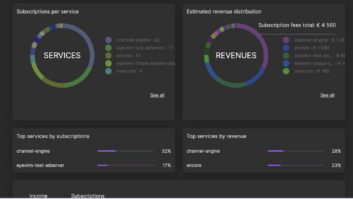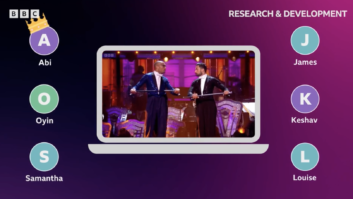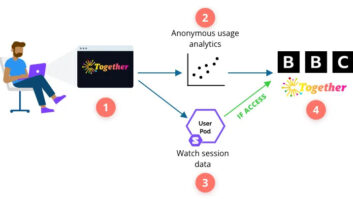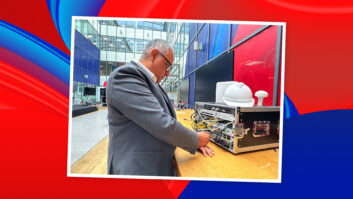The BBC’s research and development department is partnering with the universities of Surrey and Lancaster to develop and trial new ways to create and deliver object-based media at scale.
The five-year partnership aims to enable scaled delivery of a wide range of content experiences – efficiently and sustainably – to mainstream audiences via multiple platforms and devices.
In a blog post, Graham Thomas, section leader, immersive and interactive content, BBC R&D, writes that the project will enable the BBC to make the production process much simpler and lower-cost.
“Working with the University of Surrey, we will develop AI-powered techniques to allow audio and video to be separated into objects (such as individual audio tracks and distinct ‘layers’ from a video scene) and create metadata describing [a] scene,” he adds. “This will allow the content to be assembled to meet particular user needs (such as accessibility), tailored to specific device characteristics (like screen size) or audience interests and context. There is a significant overhead to achieve this in the current production process, as it is geared towards creating ‘finished’ programmes rather than the individual components needed to produce flexible content.”
The project will also address the challenge of delivering and rendering customised content. Working with Lancaster University, BBC R&D will “develop approaches to intelligently distribute the processing and data through the delivery network, making the best use of resources in the cloud, edge-compute nodes, and the audience’s networks and devices.”
Previous object-media trials by BBC R&D have relied on the user having a sufficiently powerful device to fully experience them. The plan is to now build on the BBC’s Render Engine Broadcasting work, which has developed ways of creating and delivering personalised object-based experiences to the audience and experimented with cloud-based rendering of experiences. “The challenge is to make the best use of available network and computing resources without incurring significant cloud compute costs or network congestion,” said Thomas.







